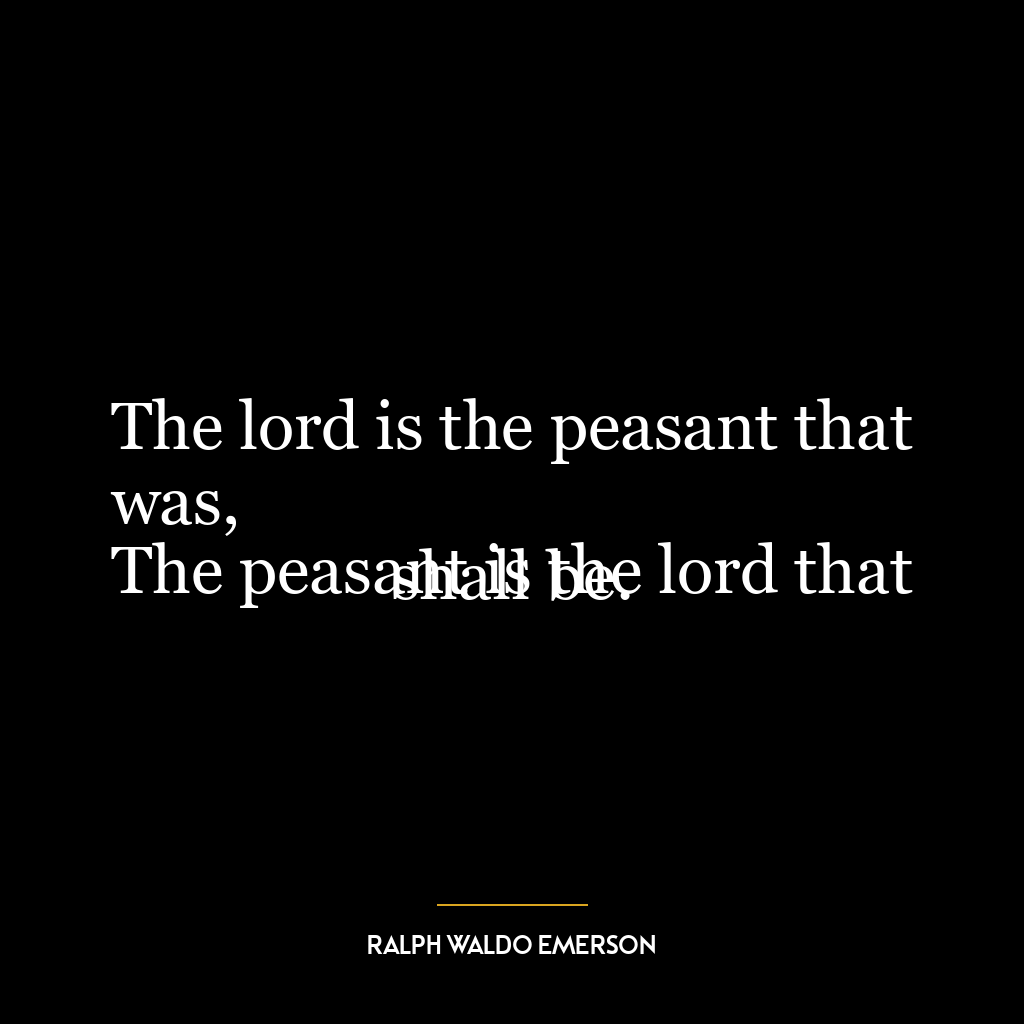This quote, “Teh lord is the peasant that was, The peasant is the lord that shall be”, speaks to the cyclical nature of life adn power dynamics. It suggests that those who are in positions of power (the lords) were once in lower positions (the peasants), and those who are currently in lower positions will eventually rise to power.The idea can be seen as a metaphor for personal growth and advancement. Just like a peasant can become a lord, an individual wiht humble beginnings or facing adversity can rise above their circumstances and achieve greatness.
When applied to today’s world, it could refer to socio-economic mobility or even political change. As a notable example, many successful entrepreneurs come from modest backgrounds but through hard work and determination have risen to become ‘lords’ in their respective fields. Similarly, political leaders frequently enough start as common citizens before rising through the ranks.
Moreover, it also implies an inherent potential within each person – regardless of their current status – for growth and achievement. It encourages us not only to recognize our potential but also strive towards realizing it.
On another level, this quote may also serve as a reminder about humility and empathy – reminding those in privileged positions about where they came from while giving hope to those currently struggling that they too can rise above their situation.
In terms of personal development, this concept could inspire individuals not only aspire for success but also remain grounded when they do achieve it since roles can always reverse just like the peasant becoming a lord and vice versa.















